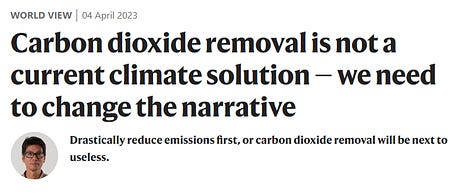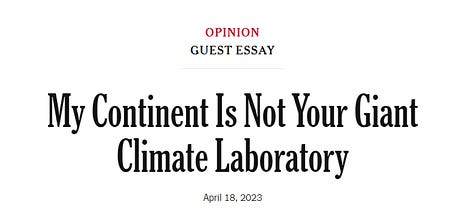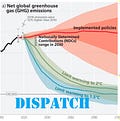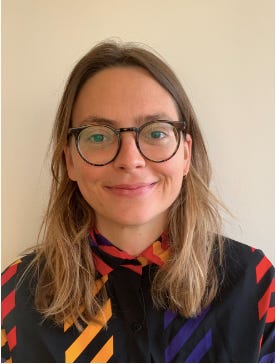Do you want your recent publication, job posting, or recent sustainability news to be featured in the Roundup? Send a link or message to rcsc@ru.nl or rcsc@substack.com
News
Registration for the Earth System Governance Conference, held at Radboud University is now open.
Events
Reminder of the upcoming Seminar Series on the Ocean: Wednesday 26 April, 12-1pm CET. Radboud University Justine Bakker (EOS 1.750)
With This Root About My Person, a recently published collection of essays dedicated to the work of Charles Long—historian of religion and one of the most important and influential thinkers in Black religious studies—opens with a remarkable revelation. Had Long not become a scholar of religion, writes David Chidester, he would have dedicated himself to “mapping” the ocean. Suggesting a lasting interest in such an enterprise, Chidester goes on to show the extent to which Long’s work emphasized the significance of the ocean—a remarkable feat, given that Long did so years, even decades, prior to the emergence of the so-called “blue humanities.” Yet, like so many before and after him, Long’s interest in the ocean was predominantly as medium for transfer—of religious peoples, objects, and ideas. In this paper, I will use the moniker “blue Black religion” to consider other ways in which the ocean shows up in, and is important for, Black religion. Specifically, I will explore Black religion over, by, on, and in the ocean. My goal will not simply be to highlight the centrality of the ocean but to ask, too, how oceanic thinking may encourage or demand that we revisit some of the central themes and frameworks in the study of Black religion.
Justine M. Bakker is Assistant Professor in Comparative Religious Studies at Radboud University Nijmegen. She works at the intersection of race and religion, focusing specifically on heterodox, esoteric, and alternative religion and conceptual and epistemological questions in the study of religion. She’s currently writing her first monograph, which is tentatively titled Demonic Ocean: Parareligion in the African Diaspora, and is co-editing a book on Sylvia Wynter and religion (with David Kline; under contract with Fordham University Press).
How sustainable is our democracy? On Thursday 11 May, from 8.00 – 10.00 pm, the ‘duurzame democratie’ (sustainable democracy) workshop will take place in the Council Chamber in Nijmegen City Hall. Register here.
Take part in the citizen survey on heat and health
We are facing increasingly warm summers and ever more heat waves owing to global warming. This level of heat can affect the health, particularly in the elderly and people with underlying health issues. At Radboud university medical center and Radboud University, we want to understand what this heat does to our health and how our environment, such as the presence of trees, ponds and parks, affects this. Would you like to register or more information? Then go to www.radboudumc.nl/hitte.
Sustainability Links



My Continent Is Not Your Giant Climate Laboratory. Chukwumerije Okereke, The New York Times
Carbon dioxide removal is not a current climate solution — we need to change the narrative. A perspective in Nature by David Ho
Inserting machines, displacing people: how automation imaginaries for agriculture promise ‘liberation’ from the industrialized farm. Agriculture and Human Values.
La Via Campesina at 30: a special grassroots voices collection, Open access
The TransAct Network has a new Youtube page, featuring recorded seminars. See the first on Transformative Ideas, here.
Sustainability Jobs
Associate Professor of Sustainable Value Chain Management, Radboud University
Call for 9 research positions to work on the political economy of post-growth at Barcelona with Jason Hickel and Giorgos Kallis
Appointment of Chair in Innovation transition Studies, Utrecht University:
Lectureship in Human-Environment Interactions, Bangor University
Researcher/Lecturer In 'The EU Governance of Climate-Proof Food Systems', Wageningen University
Assistant Professor, Governance of Sustainability Transformations in Food Systems, Wageningen University




